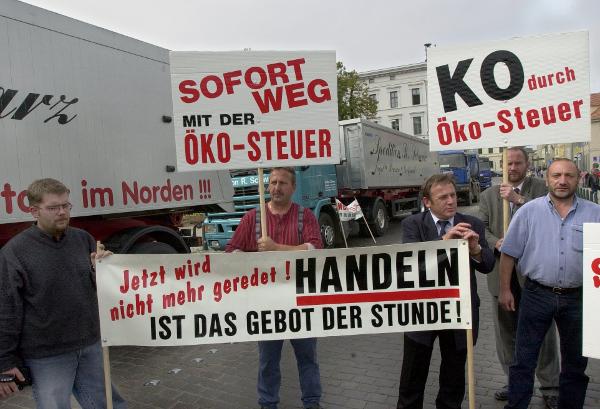Source

Source: picture-alliance / ZB (c) ZB – Fotoreport
After taking the reins of government in 1998, the SPD and the Greens began implementing the ecological tax reform outlined in their election platforms. They passed legislation to increase the tax on gas and diesel fuel by six Pfennig (around 4 U.S. cents) per year from 1999 to 2003. This “eco-tax” was introduced at a very inopportune moment: at the time, global oil prices had already risen (due in part to speculation) and the Euro was weak against the U.S. dollar. Freight companies were hit particularly hard by the (even) higher fuel prices, and in the summer of 2000, truck drivers protested by blocking streets in many German cities. Their efforts were often supported by bus and taxi drivers as well. In a populist campaign, the CDU/CSU, now in the opposition, agitated to suspend the tax, and a number of CDU politicians even demanded its complete abolishment. Taken on September 13, 2000, this photograph shows truck drivers blocking streets in the center of Schwerin (Mecklenburg-West Pomerania) to demonstrate against the tax-related rise in diesel prices. Their signs read: “Away with the eco-tax,” “Knocked out by the eco-tax,” and “No more talk. Action is the order of the day.”

Source: picture-alliance / ZB (c) ZB – Fotoreport